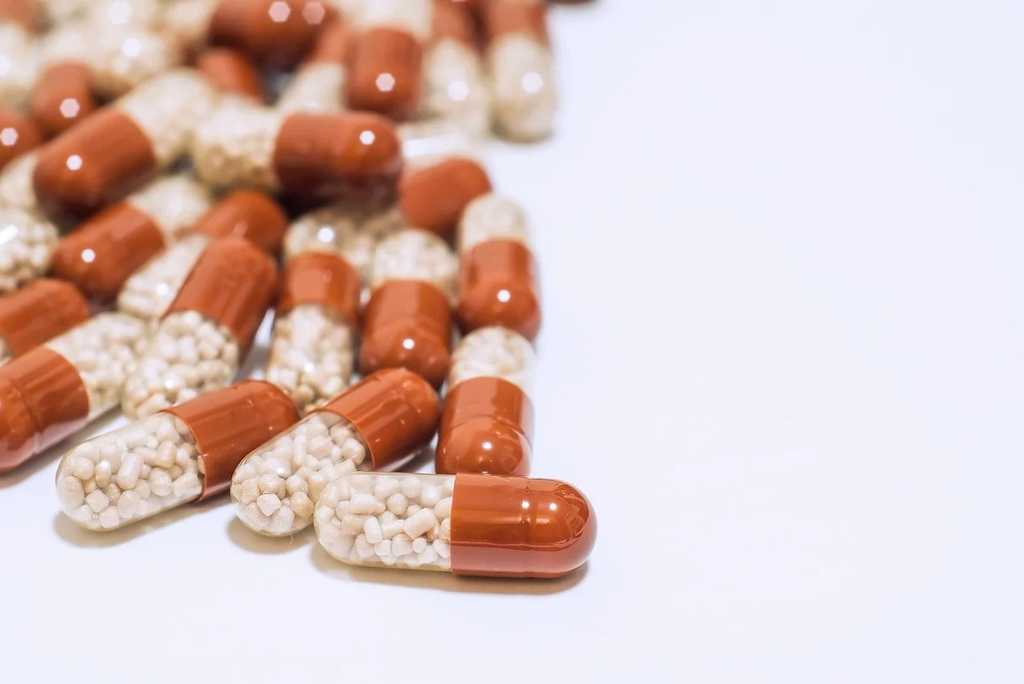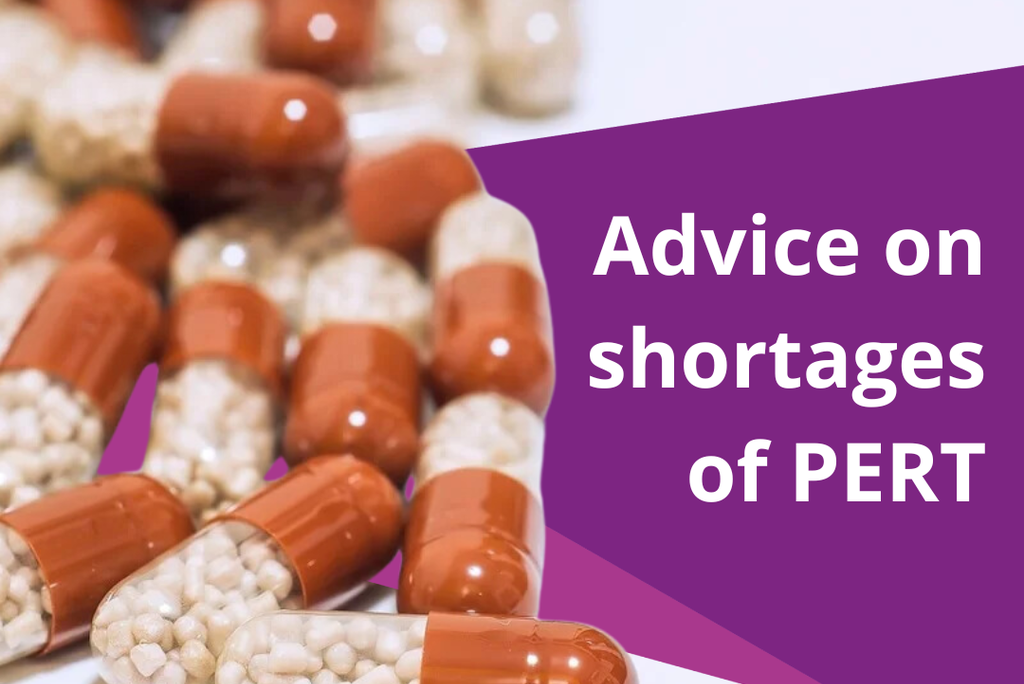Diet and nutrition
Diet and nutrition for pancreatic cancer
This section of the website contains pages with information on managing dietary symptoms such as poor appetite, weight loss and diarrhoea.
Nutrition is an important focus for people who have been diagnosed with pancreatic cancer. The disease itself, along with treatments such as surgery, radiotherapy and chemotherapy can change your body’s ability to digest and absorb nutrients from food.
The advice given here aims to be general but depending on the stage of your disease, advice may vary. If you have any concerns, it is best to discuss these with your GP, dietitian or specialist nurse.
Diet and nutrition for patients
This booklet contains information about how pancreatic cancer can affect your diet and nutrition. Provides information on managing dietary symptoms such as malabsorption, enzyme replacement, poor appetite, weight loss and managing diarrhoea. Contains a section about dietary supplements and information about diabetes and diet.

Pancreatic Enzyme Replacement Therapy (PERT)
Pancreatic enzyme replacement therapy involves taking the digestive enzymes you need in the form of a tablet.
Read more
Advice on shortages of PERT
There is a currently a global shortage of vital medication for pancreatic cancer patients and survivors. Read our blog post for information.
Read moreFrequently asked questions about diet and nutriton.
-
Suggestions to help you gain or maintain weight include
- Eat little and often, aiming for a small meal or snack every 2-3 hours
- Have your biggest meal when you are most hungry
- Eat more protein rich foods (meat, fish, eggs, cheese, beans, lentils and pulses)
- Fortify your meals through swaps such as milk for cream or the addition of milk powder to dairy or mashed potato. Try adding cheese to sauces or grated onto meals. Top fruits or cereals with honey or golden syrup.
- Your doctor or dietitian may recommend high calorie prescription supplements which come in many forms; juice, milkshakes and puddings.
Read our recipe book
Nutritional supplements
Many people with pancreatic cancer will find that they have difficulty maintaining or putting on weight. Nutritional supplements may be helpful to maintain weight and to ensure that you are getting enough vitamins and minerals.
Nutritional supplements are used to supplement your diet and where possible should not be used in place of ordinary foods.
There are many different types of products available – some you can buy (non-prescription) and others are only available on prescription. Some have a sweet taste and others savoury and some have no taste at all and can be added to other foods. Nutritional supplements come in three main groups:
- Nutritional drinks – juices, milkshake and high energy shots
- Energy and protein supplements – powders to add to milk, cream and soups
- Nourishing puddings – useful for people struggling to swallow.
If you are in doubt about whether you need a nutritional supplement and which one will be best for you, always consult your dietitian or GP.
Nutritional drinks
Nutritional drinks will come in either savoury, sweet or neutral (non-flavoured) varieties and can be served hot or cold. Other foods such as fruit and ice cream can be added to make them tastier. Non-flavoured drinks can be taken on their own or flavourings such as milkshake syrups can be added.
Nutritional drinks and supplements on prescription
Your medical team and dietitian will advise you if they feel you need nutritional supplements on prescription and how often you should take them. Many supplement products have a high sugar content and people with diabetes should seek advice from their doctor, diabetes nurse or dietitian before commencing on a course of nutritional supplements.
If you are in doubt about whether you need a nutritional supplement and which one will be best for you, always consult your dietitian or GP.
-
Advice with mealtimes
Food is an important part of life. Having and being treated for pancreatic cancer can change what you can eat, how much you feel like eating, and may make you feel uncomfortable when it comes to eating. This can be difficult to cope with.
Read our patient recipe book
Mealtimes can become an anxious time for you and your loved ones. Food that you have previously enjoyed can now taste strange, metallic or make you feel sick. Your mouth may be very dry and sore from your treatment. You may be exhausted and unable to prepare meals at this time. If you are the person in your family who has normally prepared the meals, it can feel strange to stand back and let someone else take charge.
Your family and friends may try to help by giving you suggestions about what to eat or by preparing a meal which they think you will enjoy. You may feel like you have let them down when you find that you are unable to eat what they have prepared. Try not to feel guilty, maybe ask to serve your own portion or tell them that you are aiming for little and often. Eat what you like when you feel like it. Try and be positive about what you have managed to eat rather than worry about what you didn’t eat.
What you fancy may vary from day to day so it’s a good idea to keep well stocked up on store cupboard meals and snacks, e.g. instant milky puddings, jelly and tinned fruit, ice cream, savoury snacks such as nuts and crisps, ready or convenience meals that can be stored in the freezer, tinned meats and fish, UHT milk and fruit juice, dried mashed potato, tinned vegetables, packet/tinned soups are all great to have at home.
If food tastes bland try experimenting with new tastes; spicy, very sweet or highly seasoned foods, may be more enjoyable. Toasted bread, crackers and rice offer a different texture to plain bread and potatoes.
Cold food is just as nourishing and often has less smell so may be more enjoyable. If your mouth is dry and sore soft food will be easier to swallow. Sucking sweets, chewing gum, sucking ice cubes or frozen fruit such as grapes, satsuma or pineapple segments can all be soothing, and fizzy drinks may help to keep your tongue free of coating.
-
Malabsorption is caused by damage to or removal of part of the pancreas.
This causes a change in the flow and amount of the pancreatic juice produced. Pancreatic juice contains enzymes that help the body to digest and absorb nutrients such as fat, carbohydrate and protein.
Without digestive enzymes, food passes through the digestive system without being broken and absorbed. This is called malabsorption.
Different enzymes have the job of breaking down different types of food
- Proteins are broken down by proteases.
- Starchy carbohydrates are broken down by amylase.
- Fats are broken down by lipase.
Some of the signs of malabsorption can include
- Good appetite and food intake but with continuing weight loss.
- Pale stools that are smelly and difficult to flush away.
- Bowel movements may also be more frequent and looser than normal, this is called steatorrhea.
- Bloating and abdominal pain after eating can be a result of starchy carbohydrates (bread, cereal, pasta and potatoes) not being absorbed
- Loss of weight and weaker muscles.
- A lot of flatulence (wind).
- Lower than usual blood sugars in people with diabetes.
If you are suspected to be suffering from malabsorption, you will usually have pancreatic enzymes prescribed to help you break down your food and absorb nutrients again.
Controlling malabsorption
Malabsorption can be controlled and prevented using pancreatic enzyme replacement. These are medications to replace the lost enzymes that are taken with meals, help you break down and start to absorb nutrients again.
-
A dietitian is an expert in nutrition. Dietitians are the only qualified health professionals that assess, diagnose and treat diet and nutrition problems.
Registered dietitians are regulated by the HCPC (Health Care Professionals Council). They will be able to give you advice on how to cope with nutrition problems or eating difficulties. This advice may include the use of pancreatic enzymes and nutritional supplements.
Dietitians are a key member of the Multi-Disciplinary Team (MDT) in hospitals that treat patients with pancreatic cancer. They also work in the community. If you are not currently seeing a dietitian and think you may benefit from seeing one, ask your medical team or your GP to refer you.
Dietitian or nutritionist?
Dietitians and nutritionists may seem like similar roles, but it is important that you seek information and advice from a dietitian. These are the only health care professionals who can give dietary advice to people suffering from an acute illness such as pancreatic cancer.
Dietitians can recommend supplements and other medications to manage your condition. A nutritionist generally works in nonclinical settings, outside of hospitals or GP Practices, to advise people who are medically well, about what makes a healthy diet. While they may be able to offer you some good advice, they are not in the same position as a dietitian, who is able to offer ways of maintaining or gaining weight specific to your pancreatic cancer.
Following the advice of a dietitian is the best way to make sure that you feed your body correctly when you have pancreatic cancer.
You may read or hear about diets that can treat cancer, but these have not been researched fully, and do not have enough scientific evidence to prove their effect, making them unreliable. Therefore, they are not recommended by Dietitians.
-
What is a light diet?
During the first days or week after surgery, your medical team and dietitian will help you to start eating a light diet. Nurses will be able to provide useful information about what foods to try. Generally, this is soft, moist and easily digested food.
When recovering from surgery and eating a light diet there are some foods and food groups to avoid;
- Spicy foods
- High fat foods
- Foods that contain lots of cheese (e.g. pizza, lasagne)
- High fibre foods
- Food with bits and pips in
- Fizzy drinks and alcohol
Some suggested foods for a light diet include:
Breakfast: Porridge, cornflakes or puffed rice cereal, white bread and butter or spread, smooth apple or orange juice
Main meals: Soup, white bread and butter or spread, white fish, mince, mashed potatoes, soft pasta, mousse, custard or milky puddings, bananas or fruit compotes
Snacks: Jelly, mousse, yoghurt (no pips), chocolate (without nuts or dried fruit), crème caramel, bagel with soft cheese
Always check with your dietitian or medical team if you are unsure of what type of diet you should be on.
-
Diet and Surgery for pancreatic cancer
Eating before surgery
Surgery for pancreatic cancer is a major operation and you will be assessed by your medical team to make sure you are fit enough for surgery, and it is the right choice for you.
If you are losing or have lost weight you may be advised to try and build up your weight and strength prior to the operation. If weight loss is due to damage to the pancreas, then you may be prescribed pancreatic enzyme replacement therapy to ensure you are absorbing all of the nutrients from your food.
Eating after surgery
After some operations you will be advised not to eat for a few days to let your system heal. When your doctors are happy, you will begin with sips of water before reintroducing a light diet, soft diet and building up to eating and drinking normally again. If you weren’t taking them before, you may need pancreatic enzyme replacement therapy to ensure you are able to absorb the nutrients from your food now that a portion of your pancreas is missing.
Pancreatic cancer recipe book
Created by dietitians and chefs at University College Cork, this recipe book provides advice on how best to combat cancer-induced weight loss and other eating related problems whilst undergoing pancreatic cancer treatment. It features over 80 quick, easy and energy dense recipes for nourishing meals and snacks that have been created specifically for people who find it hard to maintain a healthy weight.
In conjunction with University College Cork, Ireland, produced and University College Cork, Ireland and distributed courtesy of a grant from the Rosenfield Family.

